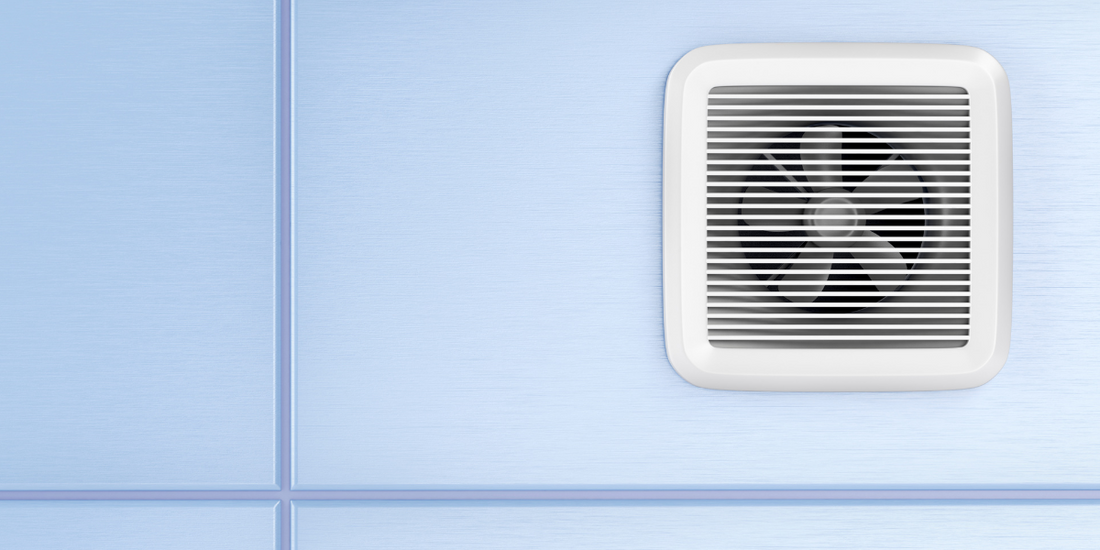
The Ultimate Guide to Eliminating Bathroom Mold
Share
Ultimate Guide to eliminating mold in a Bathroom using a Bathroom Fan
Mold in the bathroom is a common problem that can pose health risks and damage surfaces. Fortunately, a bathroom fan can be a powerful ally in preventing and eliminating mold. This guide will walk you through the steps to effectively use a bathroom fan to tackle mold.
1. Mold in the Bathroom
Mold Basics:
- Mold thrives in damp, warm environments, making bathrooms prime locations for mold growth.
- Common types of mold found in bathrooms include Aspergillus, Cladosporium, and black mold (Stachybotrys chartarum).
Health Risks:
- Mold exposure can lead to respiratory problems, allergic reactions, and other health issues.
- It's crucial to address mold promptly to maintain a healthy living environment.
2. The Role of a Bathroom Fan
How Bathroom Fans Help:
- Bathroom fans help by venting out moisture-laden air, reducing humidity levels.
- Proper ventilation prevents the conditions mold needs to grow and spread.
Choosing the Right Fan:
- Ensure your bathroom fan is the correct size for your bathroom. A fan’s capacity is measured in cubic feet per minute (CFM). Typically, a fan with 50 CFM is suitable for bathrooms up to 50 square feet.
- Look for fans with additional features like humidity sensors, which automatically activate when moisture levels rise.
3. Preparing to Remove Mold
Safety Precautions:
- Wear protective gear such as gloves, masks, and goggles to avoid contact with mold spores.
- Ensure proper ventilation by opening windows and doors, in addition to using the bathroom fan.
Gathering Supplies:
- Cleaning solutions: vinegar, baking soda, hydrogen peroxide, or commercial mold removers.
- Scrub brushes, sponges, and rags.
- A spray bottle for applying cleaning solutions.
4. Removing Mold Step-by-Step
Step 1: Identify Mold-Affected Areas
- Inspect areas prone to mold growth, such as grout lines, around the bathtub, and under sinks.
- Mark areas with visible mold for thorough cleaning.
Step 2: Ventilate the Bathroom
- Turn on the bathroom fan and open any windows to ensure adequate airflow.
- Keep the fan running throughout the cleaning process and for at least 30 minutes afterward to expel moist air.
Step 3: Apply Cleaning Solution
- Mix a cleaning solution. For a natural approach, combine equal parts of vinegar and water in a spray bottle. Alternatively, use hydrogen peroxide or a commercial mold remover.
- Spray the solution generously on mold-affected areas and let it sit for 10-15 minutes.
- Use a scrub brush or sponge to scrub the mold away. For tough spots, a mixture of baking soda and water can provide extra scrubbing power.
- Rinse the areas with water and wipe dry with a clean rag.
Step 5: Disinfect and Dry
- After removing the mold, disinfect the cleaned areas with a mixture of water and a few drops of bleach (ensure the area is well-ventilated).
- Dry the areas thoroughly to prevent any remaining moisture from fostering new mold growth.
5. Preventing Future Mold Growth
Maintain Low Humidity Levels:
- Use the bathroom fan during and after showers for at least 20-30 minutes to remove excess moisture.
- Consider a dehumidifier if your bathroom remains humid.
Regular Cleaning:
- Clean bathroom surfaces regularly to prevent mold spores from settling and growing.
- Pay special attention to grout lines and caulk around tubs and sinks.
Inspect and Repair:
- Regularly check for leaks or water damage in your bathroom. Repair any issues promptly.
- Ensure that your bathroom fan is functioning correctly and efficiently.
6. Additional Tips for Effective Mold Prevention
Upgrade Your Fan:
- If your bathroom is prone to high humidity, consider upgrading to a more powerful fan or one with a humidity sensor.
Seal Grout and Tile:
- Seal grout lines and tiles to create a water-resistant barrier that helps prevent mold growth.
Improve Overall Ventilation:
- Besides using the fan, keep bathroom doors open when not in use to improve air circulation.
- If possible, install a window or an additional exhaust vent to enhance ventilation.
The Last Word
Removing and preventing mold in your bathroom is crucial for maintaining a healthy home environment. By utilizing a bathroom fan effectively, you can significantly reduce moisture levels and prevent mold growth. Regular maintenance, vigilant cleaning, and ensuring proper ventilation are key to keeping your bathroom mold-free. Follow this guide, and you'll be well on your way to a cleaner, healthier bathroom.
By following these steps, your bathroom fan can be a valuable ally to combat mold and keep your bathroom a safe and pleasant space. Happy cleaning!
